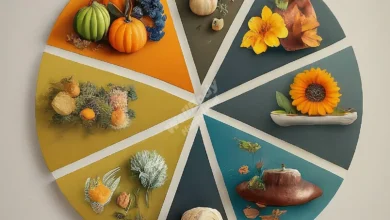Cultivating Patience: A Virtue for Sustained Motivation and Growth

Have you ever felt like giving up on a goal because it was taking too long to achieve? You’re not alone. In our fast-paced world, instant gratification often seems more appealing than long-term success. But what if I told you that the key to lasting motivation and personal growth lies in a simple yet powerful virtue? That virtue is patience.
Introduction
Patience is more than just waiting calmly. It’s a powerful skill that can transform your life, boost your motivation, and fuel your personal growth. In fact, a study published in the Journal of Personality found that patient people experience less depression and negative emotions, are more empathetic, and feel more gratitude.
In this post, we’ll explore how cultivating patience can lead to sustained motivation and significant personal growth. We’ll dive into practical strategies to develop this essential virtue and overcome the challenges of our instant-gratification culture.
Understanding Patience
What Is Patience, Really?
Patience isn’t just about waiting. It’s about how you wait. True patience involves:
- Maintaining a positive attitude while facing delays or challenges
- Persevering towards your goals, even when progress is slow
- Accepting that some things are beyond your control
- Staying calm and composed in frustrating situations
The Psychology of Patience
From a psychological perspective, patience is closely linked to emotional regulation and impulse control. When you’re patient, you’re essentially telling your brain to delay immediate rewards for greater future benefits.
Dr. Sarah Schnitker, a leading researcher on patience, defines it as “the propensity to wait calmly in the face of frustration or adversity.” Her research suggests that patience is not just an innate trait but a skill that can be developed over time.
Patience vs. Complacency: Know the Difference
It’s crucial to understand that patience is not the same as complacency. Here’s how they differ:
| Patience | Complacency |
|---|---|
| Active waiting with purpose | Passive acceptance of the current state |
| Continued effort towards goals | Lack of motivation to improve or change |
| Acceptance of the process | Resignation to circumstances |
| Belief in future progress | Contentment with mediocrity |
Being patient means you’re actively working towards your goals, even when progress is slow. You’re not giving up or settling for less – you’re persevering with purpose.
The Benefits of Cultivating Patience
Developing patience isn’t just about becoming a more virtuous person. It offers tangible benefits that can significantly improve your life:
- Improved decision-making: Patient people tend to make more thoughtful, rational decisions. They’re less likely to rush into choices they might regret later.
- Reduced stress and anxiety: When you’re patient, you’re better equipped to handle life’s uncertainties and setbacks, leading to lower stress levels.
- Enhanced relationships: Patience allows you to be more understanding and empathetic, which can strengthen your personal and professional relationships.
- Better problem-solving skills: Patient individuals often approach problems with a calmer, more analytical mindset, leading to more effective solutions.
- Increased resilience: Patience helps you bounce back from setbacks more easily, as you’re more likely to view challenges as temporary obstacles rather than permanent failures.
Research published in the Journal of Positive Psychology found that patient people reported higher levels of well-being and were more likely to achieve their personal goals.
How Patience Fuels Motivation
You might think that being patient could dampen your motivation, but the opposite is true. Patience is actually a powerful driver of long-term motivation. Here’s how:
Long-Term Goal Setting
Patience allows you to set and pursue ambitious, long-term goals. When you’re patient, you understand that significant achievements take time. This mindset helps you:
- Break big goals into smaller, manageable steps
- Stay committed even when progress seems slow
- Avoid the discouragement that comes from unrealistic expectations
Overcoming Obstacles
Life is full of challenges, and patience is your secret weapon for overcoming them. Patient individuals are more likely to:
- Persist in the face of setbacks: Instead of giving up when things get tough, patient people keep pushing forward.
- Learn from failures: Patience allows you to view failures as learning opportunities rather than reasons to quit.
- Adapt to changing circumstances: When things don’t go as planned, patient people can adjust their strategies without losing sight of their ultimate goal.
Success Stories: Patience in Action
Many successful individuals attribute their achievements to patience. For example:
- J.K. Rowling: The author of the Harry Potter series faced numerous rejections before finding a publisher. Her patience and persistence eventually led to one of the most successful book series in history.
- Steve Jobs: After being ousted from Apple in 1985, Jobs patiently built other successful companies before returning to lead Apple to unprecedented success.
- Thomas Edison: Famous for saying, “I have not failed. I’ve just found 10,000 ways that won’t work,” Edison’s patience led to groundbreaking inventions like the light bulb.
These stories illustrate that patience isn’t passive waiting – it’s active perseverance towards your goals, even when the path is difficult or unclear.
By cultivating patience, you’re not just waiting for success to come to you. You’re building the resilience and determination needed to achieve your long-term goals and sustain your motivation through challenges and setbacks.
Patience as a Catalyst for Personal Growth
Patience isn’t just about waiting; it’s a powerful tool that can accelerate your personal growth. Here’s how patience acts as a catalyst for your development:
Deeper Learning and Skill Development
When you’re patient, you give yourself the time and space to truly master new skills. This approach leads to:
- More thorough understanding: Instead of rushing to learn something quickly, you take the time to grasp concepts deeply.
- Higher quality results: Patient practice often leads to better outcomes than rushed efforts.
- Increased confidence: As you see your skills improve over time, your self-confidence grows.
The Power of Delayed Gratification
Patience is closely linked to the concept of delayed gratification – the ability to resist immediate rewards for greater future benefits. This skill is crucial for personal growth because:
- It helps you prioritize long-term goals over short-term pleasures.
- It builds self-discipline, a key trait for success in any area of life.
- It allows you to make better decisions by considering long-term consequences.
A famous study, known as the “Stanford Marshmallow Experiment,” found that children who could delay gratification (by waiting to eat a marshmallow) tended to have better life outcomes, including higher SAT scores and lower body mass index (BMI) in adulthood.
Cultivating Self-Awareness and Emotional Intelligence
Patience provides the mental space to:
- Reflect on your thoughts and actions: This self-reflection is crucial for personal growth.
- Understand your emotional responses: Patient people are often more in tune with their emotions.
- Develop empathy: By being patient with yourself, you learn to be more patient and understanding with others.
As you cultivate patience, you’ll likely notice improvements in your emotional intelligence, which can lead to better relationships and increased success in both personal and professional spheres.
Common Challenges in Developing Patience
While the benefits of patience are clear, developing this virtue isn’t always easy. Here are some common challenges you might face:
- Instant Gratification Culture: We live in a world of one-click purchases and on-demand entertainment. This environment can make it difficult to embrace the slower pace that patience requires.
- Technology and Shortened Attention Spans: Constant notifications and information overload can make it challenging to focus on long-term goals and delayed rewards.
- Societal Pressure for Quick Results: Whether it’s in your career, relationships, or personal development, there’s often pressure to achieve results quickly. This can lead to frustration when things take time.
- Personal Insecurities and Fear of Failure: Impatience is often rooted in insecurity. You might rush things because you’re afraid of failing or being judged for taking too long.
- Misconceptions About Patience: Some people mistakenly believe that being patient means being passive or letting others take advantage of you. In reality, true patience is an active and empowering choice.
Understanding these challenges is the first step in overcoming them. Remember, developing patience is a journey, and it’s okay to struggle sometimes. The key is to keep working at it consistently.
Strategies for Cultivating Patience
Developing patience is a journey, but with the right strategies, you can make significant progress. Here are some effective ways to cultivate this valuable virtue:
Mindfulness and Meditation
Mindfulness and meditation are powerful tools for developing patience. They help you:
- Stay present: Focus on the current moment rather than anxiously anticipating the future.
- Observe your thoughts: Recognize impatient thoughts without judgment.
- Calm your mind: Reduce stress and anxiety that often lead to impatience.
Try this simple mindfulness exercise:
- Sit comfortably and close your eyes.
- Focus on your breath for 5 minutes.
- When your mind wanders (and it will), gently bring your attention back to your breath.
- Practice this daily to build your “patience muscle.”
Setting Realistic Expectations
Unrealistic expectations often lead to impatience. To set more realistic expectations:
- Understand your limitations: Be honest about what you can achieve in a given timeframe.
- Break big goals into smaller, achievable steps: This makes progress more visible and frequent.
- Allow for setbacks: Build buffer time into your plans for unexpected challenges.
Practicing Delayed Gratification
Strengthening your ability to delay gratification can significantly boost your patience. Try these exercises:
- The 5-minute rule: When you feel the urge to do something impulsive, wait 5 minutes before acting.
- Savings challenge: Save a small amount of money each day, increasing the amount gradually.
- Hobby projects: Engage in activities that require time and effort to see results, like gardening or learning an instrument.
Embracing the Learning Process
View challenges as opportunities for growth rather than obstacles. This mindset shift can make you more patient with the process of improvement.
- Reframe setbacks: Instead of “I failed,” think “I learned something new.”
- Celebrate small wins: Acknowledge progress, no matter how small.
- Keep a growth journal: Document your learning experiences and progress over time.
Developing a Growth Mindset
A growth mindset, coined by psychologist Carol Dweck, is the belief that abilities can be developed through dedication and hard work. This mindset naturally fosters patience.
To develop a growth mindset:
- Use “yet” statements: Instead of “I can’t do this,” say “I can’t do this yet.”
- Seek challenges: Embrace difficult tasks as opportunities to grow.
- Value effort over outcome: Focus on the process of learning and improving, not just the end result.
The Role of Patience in Different Areas of Life
Patience plays a crucial role in various aspects of life:
Career Development
- Long-term career planning: Patience allows you to make strategic career moves rather than jumping at every opportunity.
- Skill development: Mastering new skills takes time and consistent effort.
Relationships
- Building trust: Deep, meaningful relationships develop over time.
- Conflict resolution: Patience helps you listen and understand others’ perspectives.
Personal Health and Wellness
- Fitness goals: Sustainable health improvements often require consistent, patient effort.
- Mental health: Patience is crucial when working through emotional challenges or therapy.
Financial Management
- Long-term investing: Patient investors often see better returns than those who frequently trade.
- Budgeting and saving: Patience helps you stick to financial plans and resist impulsive purchases.
By applying these strategies and recognizing the role of patience in different life areas, you can gradually build this essential virtue. Remember, developing patience is itself a process that requires… patience!
Overcoming Impatience: Practical Tips
Even as you work on cultivating patience, you may find yourself struggling with moments of impatience. Here are some practical tips to help you overcome these challenging moments:
- Practice deep breathing exercises: When you feel impatience rising, take a few deep breaths. This can help calm your mind and body.
- Use positive self-talk: Replace impatient thoughts with more constructive ones. For example, instead of “This is taking forever!” try “I’m making progress, even if it’s slower than I’d like.”
- Break large goals into smaller, manageable tasks: This can help you feel a sense of progress more frequently, reducing impatience.
- Celebrate small victories along the way: Acknowledging your progress, no matter how small, can boost motivation and patience.
- Seek support from friends, family, or professionals: Sometimes, talking through your frustrations can help you gain perspective and patience.
- Practice mindful waiting: When stuck in a long line or traffic, use it as an opportunity to practice mindfulness instead of getting frustrated.
- Create a patience mantra: Develop a short phrase you can repeat to yourself in moments of impatience, like “Progress takes time” or “I am calm and patient.”
- Engage in activities that require patience: Puzzles, gardening, or learning a musical instrument can help you practice patience in a low-stakes environment.
Remember, overcoming impatience is a process. Be patient with yourself as you work on developing this skill!
Conclusion
Cultivating patience is a powerful strategy for sustaining motivation and fostering personal growth. As we’ve explored in this post, patience is not about passive waiting, but rather an active choice to persist in the face of challenges and delays.
By developing patience, you’re equipping yourself with:
- Improved decision-making skills
- Enhanced resilience
- Stronger relationships
- Better problem-solving abilities
- A growth mindset that fuels continuous personal development
Remember, cultivating patience is itself a journey that requires… patience! It’s normal to face challenges along the way, but with consistent effort and the strategies we’ve discussed, you can develop this valuable virtue.
As you move forward, I encourage you to start incorporating patience-building practices into your daily life. Whether it’s through mindfulness exercises, setting realistic expectations, or practicing delayed gratification, every small step counts.
In the words of Joyce Meyer, “Patience is not the ability to wait but the ability to keep a good attitude while waiting.” So, as you work towards your goals, remember to embrace the journey, learn from the process, and maintain a positive outlook.
Your path to a more patient, motivated, and growth-oriented life starts now. What small step will you take today to cultivate patience?



